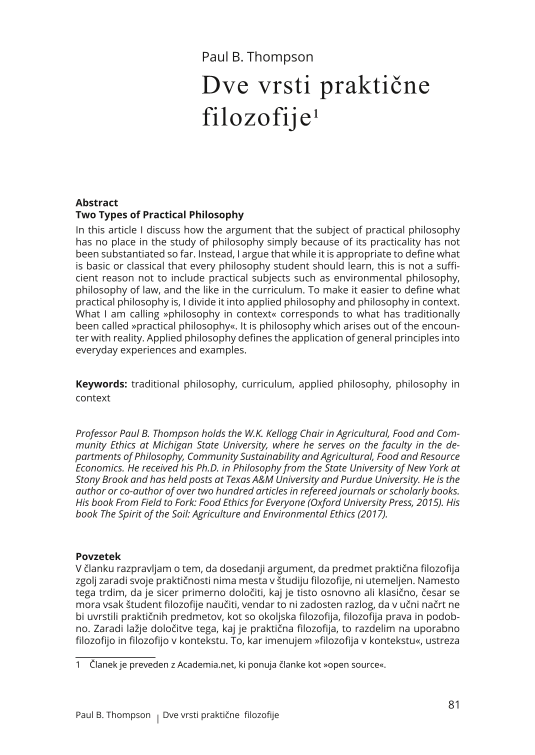In this article I discuss how the argument that the subject of practical philosophy has no place in the study of philosophy simply because of its practicality has not been substantiated so far. Instead, I argue that while it is appropriate to define what is basic or classical that every philosophy student should learn, this is not a sufficient reason not to include practical subjects such as environmental philosophy, philosophy of law, and the like in the curriculum. To make it easier to define what practical philosophy is, I divide it into applied philosophy and philosophy in context. What I am calling »philosophy in context« corresponds to what has traditionally been called »practical philosophy«. It is philosophy which arises out of the encounter with reality. Applied philosophy defines the application of general principles into everyday experiences and examples.




